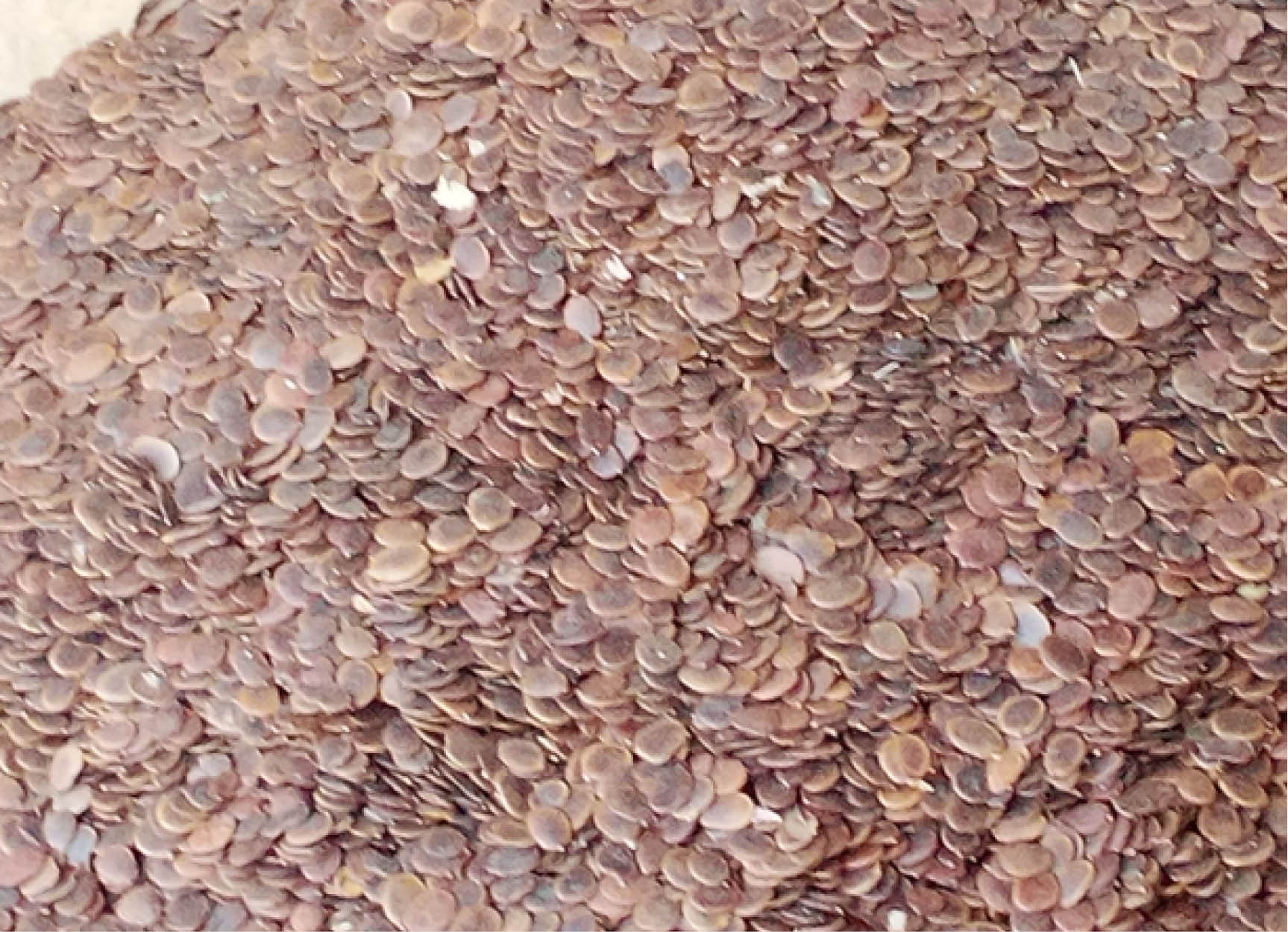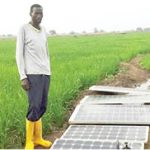Communities residing in the forest areas of Taraba are making good fortunes from the sale of wambo seeds that is regarded as a hidden treasure of Taraba forest. Daily Trust takes a look at the thriving business of Wambo seeds
The seeds are picked during the morning and evening around the tree and they cost between N60,000 N70,000 per 100kg while a measure costs between N5,500 and N7,000.
- Missing jet: Boko Haram released doctored video, says Air Force
- CSOs, others want re-amendment of CAMA Act 2020
The tree that produces wambo seeds is wild and is found inside the forests across 6 local government areas of Taraba State.
Daily Trust Saturday finding revealed that most people in the state do not know much about the seeds except those residing in the forest areas.
Similarly, the locals do not also know what the seeds are used for, neither do they eat them but only take the seeds to some merchants who come to the area to buy at the time of harvest.
Checks by the Daily Trust revealed that the botanical name of wambo is Brachystegia eurycoma. The seed is used as dietary condiment and as part of recipes for treating colorectal disorders, while laboratory studies have established that it contains crude fiber and polyphenols which are important in cancer prevention.
Our finding revealed that because of the high value of the seeds, all the people in the local communities in forest areas visited are involved in picking them.
Buyers of the seeds, Daily Trust gathered, are merchants from Eastern parts of the country who also monopolised buying network for the past years.
At Serti, a trader, Alhaji Bello Haruna, who is in the business of buying and selling wambo, told Daily Trust Saturday that he has been in the business for over ten years now.
According to him, the seeds are collected inside the forest and brought to the market for sale by villagers residing in the forest area.
He said usually, the seeds mature between the month of February and March annually.
After maturing, the brown seeds will shoot out from their shields and fall on the ground.
At this period, people residing in the location with wambo tree would go into the forest and pick the seeds mostly in the morning and evening.
Areas where the wambo seeds are available, according to Daily Trust finding, include forests in Gashaka,Dakka, Kurm, Takum, Bali and Ussa as well as Galda.
A trader in Serti, Alhaji Dauda Nuhu, told Daily Trust Saturday that he has been trading in wambo and honey for many years but the merchant who has been buying the seeds from him never told him what it is used for or where they are taking it to.
“They are only coming to buy the seeds from us but they never told us what they are using the seeds for or where they are taking it to for sale,” he said.
According to him, more than a hundred bags of the seeds was purchased and taken out of Serti area this year.
Dauda Nuhu revealed that this year wambo trees had yielded more seeds and the price was good because more people came from the East to buy the seeds.
Dauda, also revealed that annually, women and young men come from Cameroon to pick and sell the seeds.
He said the seeds are more available inside Gashaka-Gumti National Park because there are more wambo trees more than in any forest in the state.
He said, however, that there is a restriction that any person found inside the park will be arrested and handed to the police for prosecution.
According to him, despite the restrictions, many people, especially those from Cameroon, sneak inside the forest to pick the seeds.
“At the end of their stay which usually lasted for about two months, the Cameroonians made a lot of money ranging from N100,000 to N150,000,” he said.
A staff member of the park who would not like his name mentioned told Daily Trust Saturday that picking Wambo seeds inside the park is prohibited and those arrested are taken to court for prosecution and the seeds confiscated.
Findings by Daily Trust further revealed that in Kurmi Local Government Area, hundreds of people residing in the area are making money from the sale of Wambo seeds annually.
A resident, Mr. Sunday Yakubu, told our reporter that wambo tree is very common in the area and it has been a good source of income for many of them over the years.
He said, however, that no one can tell you what the seeds are used for but there are many regular buyers who have been coming to the area to buy the seeds yearly.
“We don’t know what the seeds are used for and those buying it from us never disclosed their use or where they are taking it to,” he said.
Sunday, however, revealed that Wambo trees in the area are being destroyed by loggers.
He said wambo trees are giant and tall and attract a better price than the other trees and in recent time, loggers shifted their attention to the tree, resulting in the destruction of many wambo trees.
At Garbabi town located along Bali Serti road, a trader, Haruna Tsoho, who owned a shop by the roadside, told Daily Trust that he has been in the business of buying and selling Wambo seeds for many years, and the price of the seeds keeps increasing year by year.
He said in previous years, a 100kg bag of the seeds cost between N50,000 and N60,000 but this year, it was sold at N70,000.
Commenting on wambo seeds, the state Commissioner of Environment, Alhaji Ibrahim Umar, said communities in forest areas are making good fortunes from the sale of the seeds.
He said the tree is wild and found deep inside the forest in many local government areas of the state.
The commissioner stated that over the years, people residing in forest areas have been involved in picking the seeds and selling them to some merchants who annually come to the area to purchase the seeds.

 Join Daily Trust WhatsApp Community For Quick Access To News and Happenings Around You.
Join Daily Trust WhatsApp Community For Quick Access To News and Happenings Around You.


